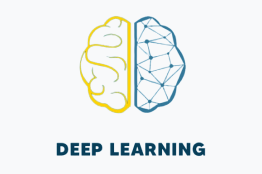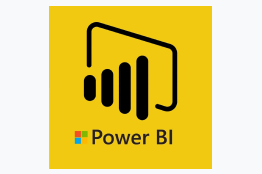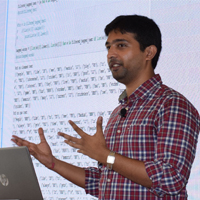


"Business Analytics is a rapidly growing field that has a high demand for skilled professionals. With the increasing importance of data-driven decision-making in business, the need for experts in Business Analytics is becoming more critical. Graduates of the Post Graduate Program (PGP) in Business Analytics by Aegis School of Data Science are well-equipped to meet this demand and launch their careers in this exciting field. "
The job opportunities in Business Analytics are vast and diverse, ranging from data analysts, business analysts, HR analysts, marketing analysts, operations analysts, financial analysts, data analysts, data scientists, and more. These roles can be found in a variety of industries such as finance, healthcare, retail, e-commerce, marketing, and more
With a PGP in Business Analytics, graduates can expect to be highly sought after by companies looking to leverage the power of data to improve business operations, gain insights into customer behavior, and stay ahead of the competition. Graduates will be equipped with the skills to collect, analyze, and interpret data, create predictive models, and develop data-driven strategies







.png)

Busienss Analytics is the practice of using data, statistical and quantitative analysis, and computational methods to drive business decision-making, strategy, and performance. It involves collecting, processing, and analyzing data to extract insights, trends, and patterns that can help organizations make informed decisions and optimize business processes. Business analytics can be applied in various areas such as sales and marketing, operations, finance, human resources, and supply chain management. The goal is to identify opportunities for growth and improvement, reduce costs and risks, and gain a competitive edge in the market.
Applications of Business Analytics
Business Analytics has a wide range of applications across industries and functions. Here are a few examples:
These are just a few examples of the many applications of Business Analytics in various industries and functions.
Students who have studied PGP in Business Analytics can pursue a variety of job roles in different industries. Some of the job roles that are relevant to this program include:
These are just a few examples of the job roles that students who have studied PGP in Business Analytics can pursue. The skills and knowledge gained in this program are highly versatile and applicable to a wide range of industries and job roles.







.png)
Eligibility requirements for most programs include:
Bachelor's degree in any discipline from a recognized university
Strong quantitative skills, including mathematics and statistics
Basic knowledge of programming languages such as Python or R
Good communication skills in English
Relevant work experience in data analysis or related fields may be preferred but not always required
Business Analytics is a field that is useful for individuals from a variety of backgrounds who are interested in using data-driven insights to make informed business decisions. Some of the ideal candidates for a career in Business Analytics include:
Overall, Business Analytics is an ideal field for individuals who are interested in using data to drive decision-making and improve business outcomes.
Origin of Business Analytics
The origins of Business Analytics can be traced back to the 19th century when statistical methods were first applied to data analysis in order to make better business decisions. However, the field really began to take off in the mid-20th century with the advent of computers and the ability to process large amounts of data quickly. In the 1950s and 1960s, early pioneers in the field such as George Box and W. Edwards Deming developed statistical tools and methodologies to help businesses improve quality control and make better decisions.
In the 1970s, the concept of decision support systems (DSS) emerged, which provided managers with computer-based tools for making strategic decisions. By the 1990s, the field had evolved into what we now call Business Analytics, with a focus on using data, statistical and quantitative analysis, and predictive modeling to drive business decision-making and strategy. With the explosion of digital data in recent years, Business Analytics has become an increasingly important and in-demand field.
Term 1:
Business Analytics Fundamentals
Business Fundamentals
Statistics for Business Analytics
Spreadsheet Modeling for Analytics
Visualization with Power BI/ Tableau
Python for Data Analysis
Term 2:
Applied Regression Analysis
Machine Learning for Business Analytics
Marketing Analytics
Time Series Analysis and Forecasting
Financial Analytics
Term 3:
Operations Analytics
Customer Analytics
Fraud Analytics
Capstone Project
Elective Courses
SQL
Predictive Analytics
Forecasting Methods for Business
Deep Learning
Social Media and Web Analytics
Healthcare Analytics
NLP for Text Analytics
Supply Chain Analytics
Data Management and Warehousing
Financial Accounting for Managers
Marketing Management
Operations Management
Decision Analysis and Optimization
Big Data Analytics and Hadoop
Data Warehousing and ETL Process
Project management
The focus of this curriculum is to provide students with a strong foundation in both the technical and business aspects of analytics, while also allowing them to specialize in specific areas of interest through the elective courses and capstone project.
Brief on each course module
Business Analytics Fundamentals: This course provides an overview of business analytics and its various applications in different industries. Students will learn about the importance of data in decision-making, the different types of data, and how to interpret data to gain insights.
Business Fundamentals: This course covers the basic principles of business management and strategy. Topics include accounting, finance, marketing, operations management, and organizational behavior.
Statistics for Business Analytics: This course covers the fundamentals of statistics, including probability, hypothesis testing, and regression analysis. Students will learn how to apply statistical techniques to business problems and interpret statistical results.
Spreadsheet Modeling for Analytics: This course covers advanced Excel techniques for modeling and analysis. Students will learn how to use Excel to build decision models and perform data analysis, including scenario analysis, optimization, and simulation.
Visualization with Power BI/ Tableau: This course covers the principles of data visualization and the use of visualization tools such as Power BI or Tableau. Students will learn how to create effective data visualizations that communicate insights and support decision-making.
Python for Data Analysis: This course provides an introduction to the Python programming language and its use in data analysis. Students will learn how to use Python libraries such as Pandas and NumPy to manipulate data and perform basic data analysis tasks.
Applied Regression Analysis: In this course, students will learn how to build regression models to analyze the relationships between variables in business data. The course will cover topics such as simple and multiple linear regression, model diagnostics, and model selection. Students will also learn how to use regression analysis to make predictions and solve business problems.
Machine Learning for Business Analytics: This course introduces students to machine learning techniques such as clustering, decision trees, and random forests, and how they can be applied to solve business problems. Students will also learn about deep learning techniques such as neural networks and how they can be used for image and text analysis.
Marketing Analytics: This course focuses on how analytics can be used to solve marketing problems. Students will learn how to measure marketing effectiveness, segment customers, and optimize marketing campaigns. The course will also cover topics such as customer lifetime value and customer churn.
Time Series Analysis and Forecasting: This course module covers the fundamental concepts and techniques for analyzing time series data and making forecasts. Students will learn how to model different types of time series, identify patterns, and apply various forecasting methods.
Financial Analytics: In this course, students will learn how to use analytics to solve financial problems such as portfolio optimization, risk management, and fraud detection. The course will cover topics such as time series analysis, volatility modeling, and value at risk. Students will also learn how to use software tools such as R and Python to analyze financial data.
Operations Analytics: This course module covers the use of analytics in operations management. Topics include process analysis, queuing theory, inventory management, and supply chain management. Students will learn how to use data analytics tools and techniques to optimize operations.
Customer Analytics: This course module covers the use of customer data to understand customer behavior and preferences. Topics include customer segmentation, lifetime value analysis, and churn analysis. Students will learn how to use customer data to develop effective marketing strategies.
Fraud Analytics: This course module covers the use of analytics to detect and prevent fraud. Topics include fraud detection techniques, fraud risk assessment, and fraud prevention strategies. Students will learn how to use data analytics tools and techniques to identify and prevent fraud.
Capstone Project: The capstone project is a culminating experience that provides students with an opportunity to apply the knowledge and skills they have acquired throughout the program. Working in teams, students will identify a business problem and use data analytics tools and techniques to develop a solution. The project will involve data collection, analysis, and interpretation, and will culminate in a final presentation to a panel of industry experts.
Admissions Team